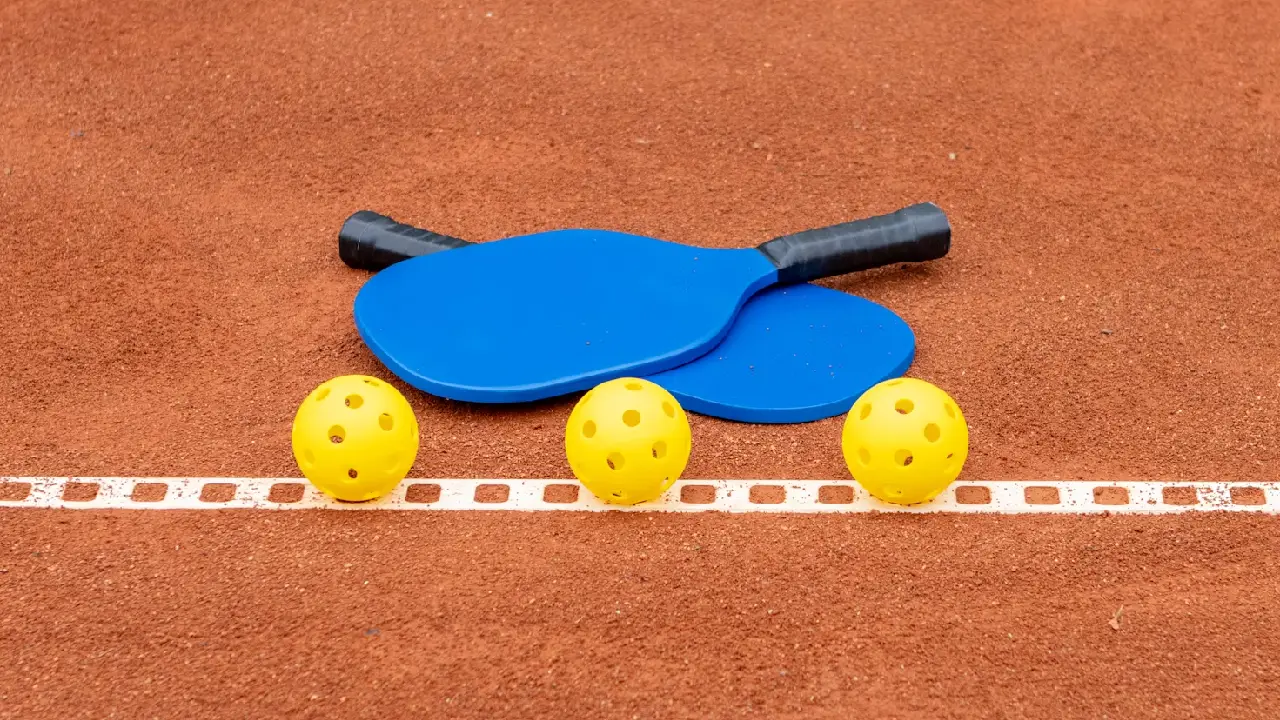Best Cheap Pickleball Paddles in 2025
Pickleball has exploded in popularity over the last few years, but getting started doesn’t have to break the bank. Whether you’re a brand-new player looking to dip your toes in the sport or a seasoned veteran who needs a reliable backup paddle, there are some fantastic budget-friendly options on the market this May 2025. In this in‑depth guide, we’ll unpack everything you need to know about selecting an affordable pickleball paddle—covering materials, core technology, grip sizes, sweet spots, and our top picks for the best cheap pickleball paddles in 2025.
Why Choose a Budget Paddle?
1. Lower Barrier to Entry
If you’re just starting out, spending $150–$200 on a premium paddle can feel like overkill. Budget paddles, typically in the $30–$70 range, let you learn the fundamentals—proper grip technique, stroke mechanics, court positioning—without a hefty upfront investment.
2. Versatility as Backup Gear
Even advanced players benefit from a secondary paddle. Maybe you’re lending gear to a friend or need a paddle for mixed-surface play. A cheap paddle gives you that flexibility without worrying about scuffs and dings.
3. Experimenting with Styles
Different core materials and surface textures produce distinct feels—some offer more pop and power, others excel at control and spin. Affordable paddles let you test these variations, helping you find your sweet spot before committing to a high‑end model.
Check out our premium pickleball courts, perfectly engineered for next-level gameplay!
Key Features to Evaluate in Budget Paddles
Before jumping into our top picks, let’s talk about the core elements every paddle—regardless of price—should deliver.
1. Face Material
Polycarbonate/Composite Fiberglass: Most budget paddles use a thin fiberglass or polycarbonate face. Fiberglass is slightly more flexible.
Carbon Fiber Overlays: Rare in sub‑$70 paddles, but some use lightweight carbon layers for increased stiffness and control.
2. Core Technology
Polymer Honeycomb: The most common cheap‑paddle core. Soft polymer honeycomb offers good sound dampening and a forgiving sweet spot, making it ideal for beginners.
Aluminum Honeycomb: Stiffer and louder than polymer; provides more pop but can be harsh on the arm. You’ll find aluminum cores in mid‑tier paddles around $70.
Nomex Honeycomb: Unlikely in true “budget” models—Nomex cores are rigid, high‑energy cores reserved for higher price points due to complex manufacturing.
3. Weight and Balance
Lightweight: Ideal for rapid wrist action, finesse shots, and less fatigue in long sessions.
Midweight: Strikes a compromise between power and control—preferred by players who switch between offense and defense.
Balance Point: Head‑heavy paddles deliver more power but can strain the wrist; handle‑heavy paddles offer superior control and faster reaction.
4. Grip Size and Material
Grip Circumference: Smaller grips facilitate wrist spin, larger grips aid stability.
Grip Material: Budget paddles often sport basic perforated PU grips, which wick moisture but may wear faster. Look for thicker, cushioned grips if possible.
5. Edge Guard vs. Edge‑to‑Edge
Edge Guards: Protect the paddle from dings and cracks but create a small dead zone along the perimeter.
Edge‑to‑Edge Construction: Maximizes hitting surface but sacrifices durability—rare in budget models due to cost.
Top 7 Cheap Pickleball Paddles of May 2025
| Paddle Model | Material | Why This One | Buy Link |
| Niupipo Pro Carbon Fiber | Carbon Fiber Face | Premium Feel at a low price | Click Here |
| Onix Evoke Premier | Fiberglass Face | Large sweet spot, soft touch. | Click Here |
| Gamma Needle Essential | Textured Fiberglass | Spin-enhancing surface | Click Here |
| Rally Tyro 2.0 | Polycarbonate Face | Durable and power-oriented | Click Here |
| Head Radical Elite | Carbon Composite | Balanced and crisp serving | Click Here |
| Vulcan V355R Edge-to-Edge | Fiberglass Face | Ultra Cushion Grip | Click Here |
| Franklin Signature Cushioned | Fiberglass Face | Edge-to-edge max surface | Click Here |
1. Niupipo Pro Carbon Fiber
Price: $59
Face: Carbon Fiber overlay
Core: Polymer Honeycomb
Niupipo’s Pro Carbon Fiber strikes a remarkable balance between stiffness and flex. The carbon fiber layer adds responsiveness and a pleasing “pop,” while the polymer honeycomb core dampens vibrations, protecting your elbow. At just under $60, it feels like a paddle twice its price. The grip is a perforated PU wrap—nothing fancy, but durable and sweat‑resistant. Players laud its consistent ball return and surprisingly crisp sound.
Best For: Intermediate players seeking a power boost without gloves‑like copays.
2. Onix Evoke Premier
Price: $65
Face: Fiberglass
Core: Polymer Honeycomb
The Evoke Premier features one of the largest sweet spots in the budget category. Onix uses a refined fiberglass face that promises both pop and a forgiving hit even on off‑center shots. The paddle’s lighter swing weight makes it effortless to maneuver at the net for those lightning‑fast “blocks.” Onix also includes a modest edge guard, protecting your investment through plenty of hard‑court collisions.
Best For: Newer players wanting extra forgiveness on mishits and quick hands at the net.
3. Gamma Needle Essential
Price: $45
Face: Textured Fiberglass
Core: Polymer Honeycomb
Gamma’s Needle Essential bucks the flat-face trend with an aggressive, sand‑papery texture embedded in its fiberglass surface. This micro‑texture translates to top‑notch spin potential—pops that kiss the net, slides that bewilder opponents. It’s featherlight, so overhead smashes and rapid drives feel surprisingly effortless. Just be mindful: the super‑textured face wears in over time, slightly reducing spin—so consider it a starter paddle.
Best For: Spin‑hounds and rally‑builders on a tight budget.
4. Rally Tyro 2.0
Price: $50
Face: Polycarbonate
Core: Aluminum Honeycomb
The Tyro 2.0 is for the basher at heart. Its aluminum honeycomb core and polycarbonate face give it thunderous pop—ideal for drives from the baseline or power dinks. That mid‑heavy feel delivers momentum on every swing, though it can fatigue your wrist in marathon matches. The grip is generously cushioned, balancing out the heft with comfortable ergonomics. It’s also built like a tank: if you want a paddle that lives to be slammed, this is your pick.
Best For: Aggressive baseliners who prize raw power over finesse.
5. Head Radical Elite
Price: $70
Face: Carbon Composite
Core: Polymer Honeycomb
The Radical Elite merges Head’s tennis‑tech expertise with pickleball design. A carbon composite face adds stiffness for crisp volleys, while the hexagonal polymer core retains a playful feel. Balance is impeccable: head and handle weights are finely tuned so you can flick volleys or swing full drives without overcorrection. The grip—borrowed from Head’s tennis overgrips—is thin yet tacky, boosting tactile feedback.
Best For: Players transitioning from racquet sports who want familiar feel and balance.
6. Franklin Signature Cushioned
Price: $35
Face: Fiberglass
Core: Polymer Honeycomb
Franklin’s entry‑level standout boasts one feature many overlook: a super‑cushy grip. If you battle arm fatigue or grip slippage, this paddle feels like holding a marshmallow… but without sacrificing ball control. The fiberglass face is smooth, encouraging controlled placement over blistering power. Yes, the sweet spot is modest, and pop is modest—but for $35, it’s a dream for prolonged rallies and social play.
Best For: Recreational players and seniors seeking comfort and control.
7. Vulcan V355R Edge‑to‑Edge
Price: $68
Face: Fiberglass
Core: Polymer Honeycomb
Vulcan’s V355R is one of the few true edge‑to‑edge designs you’ll find under $70. That extra hitting real estate boosts your marginal gains—permitting dinks and drives slightly wider than competitors. The fiberglass face is durable, and the core remains consistent across the surface, avoiding dead zones. True to its pricing, the paddle needs careful handling (no edge guards), but the performance payoff is worth it.
Best For: Skill‑builders who demand every millimeter of sweet spot and don’t mind babying their gear.
In‑Depth Buying Advice
Match Paddle to Play Style
Control & Placement: Go lightweight with smooth fiberglass or carbon composite faces (e.g., Franklin, Gamma).
Power & Pop: Mid‑heavy with aluminum cores or carbon overlay faces (e.g., Rally Tyro, Niupipo).
Spin & Dinks: Textured faces with polymer cores (e.g., Gamma Needle).
Consider Your Physical Profile
Wrist/Elbow Health: Polymer cores dampen vibrations. Avoid aluminum cores if you have joint issues.
Hand Size: Measure grip circumference. If you’re between sizes, choose smaller and add an overgrip.
Test Before You Invest
Many local shops and community centers host demo days where you can try several paddles for free.
Pay attention not just to “feel” but also how the paddle returns spin and handles off‑center hits.
Maintenance Matters
Edge Guards: If your budget paddle has one, keep it in good condition to avoid cracks.
Grip Replacement: Swap out cheap grips after 20–30 hours of play; a fresh overgrip can transform a paddle.
Surface Care: Wipe faces with a damp cloth to remove grit that heals in and dulls spin.
Conclusion
Investing in a budget pickleball paddle in 2025 doesn’t mean settling for subpar performance. Today’s entry‑level models leverage advanced cores, composite faces, and thought‑out ergonomics that rival pricier counterparts. By matching the paddle’s weight, face material, and core technology to your play style, you’ll maximize your value per dollar—and maybe discover your next favorite backup or spin‑machine.
Ready to up your paddle game without draining your wallet? Pick one of our top seven budget champions and hit the court with confidence—your best rally yet awaits!
COMMENTS
Sort by :





Leave A Comment